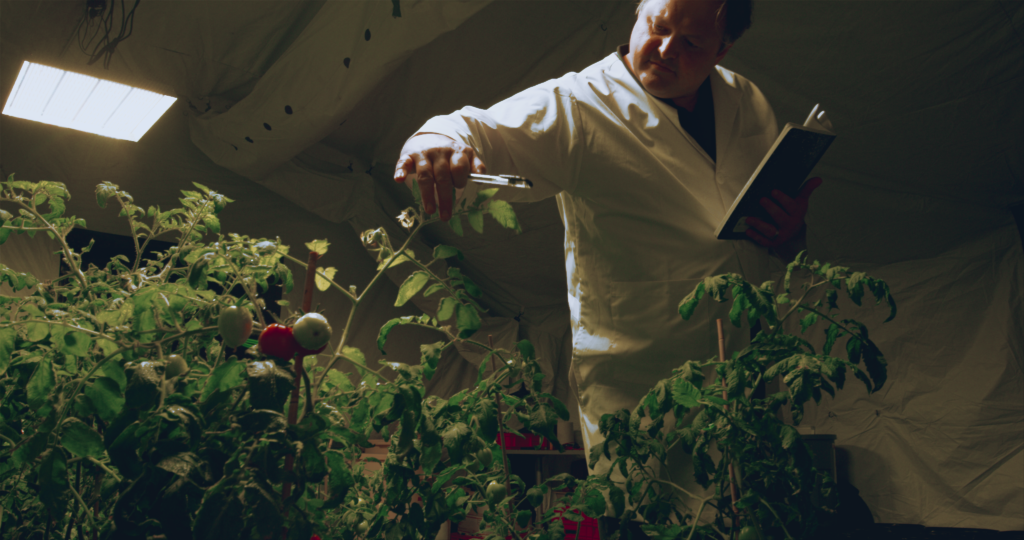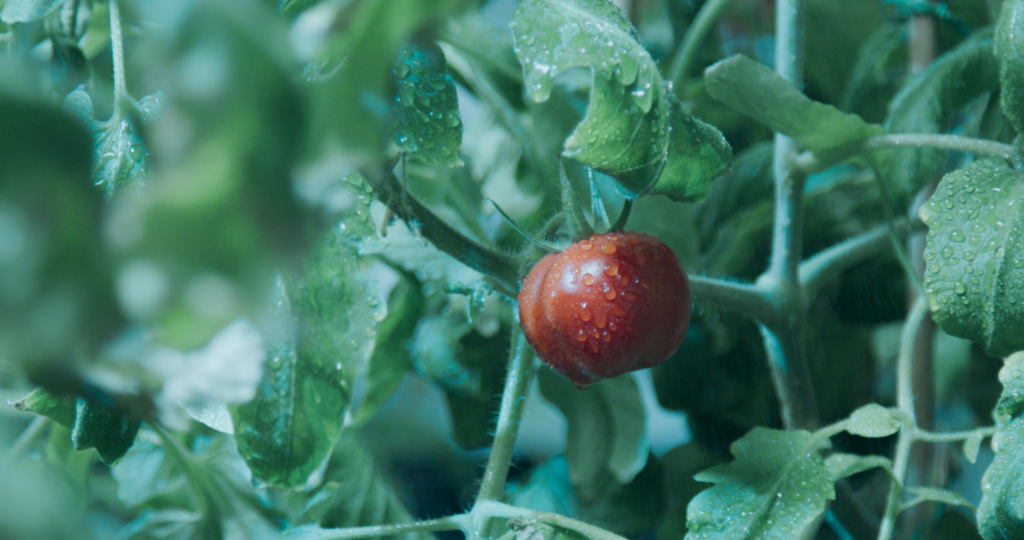HEINZ MAKES NEW KETCHUP FROM ‘MARS’-GROWN TOMATOES
Kraft Heinz, North America’s 3rd biggest food company, in collaboration with the Aldrin Space Institute, has unveiled its Heinz Tomato Ketchup Marz Edition, which is made from tomatoes grown in conditions similar to those found on Mars.
Kraft Heinz says pretending to grow crops on the Red Planet, where temperatures drop below -60 degrees, could teach earth valuable lessons
Thiago Rapp, the international brand manager for Heinz Tomato Ketchup, told SIAL Newsroom: “Heinz are leaders in understanding how to transform different soil and environmental conditions into successful crop growing habitats.
“We work with partners across the world to pair our seeds and techniques with the unique nutrient and biological make-up of the earth there.
“This project took that one step further.”
A batch of Heinz Tomato Ketchup Marz Edition was unveiled at the company’s headquarters in Chicago earlier this month.
The out-of-this-world sauce was produced by a team of 14 astro-biologists who spent nine months growing tomatoes in their specially designed RedHouse which replicates Mars’ soil and climate.

Temperatures on Mars, the fourth planet from the sun, drop below minus 60 degrees celsius and its surface is covered by canyons, volcanoes, dry lake beds and craters, according to NASA.
Rapp said: “For an example we created the ‘RedHouse’ – our Martian greenhouse, for the project.
“We recreated the light, temperature, and soil (regolith) conditions for the most accurate Martian environment available to us.”
Heinz’s successful harvest guarantees people will be able to enjoy the company’s signature tomato ketchup for generations to come, but it also paves the way to developing climate-resilient crops here on earth.
Rapp said: “The project was created to enhance knowledge of growing tomatoes in a sustainable way, not just on the red planet but also on our own.
“It was successful in growing tomatoes in notoriously harsh Martian conditions, in doing so the study has important implications for the future of growing food.
“We are looking at how we can use learnings from Heinz on Mars on Earth, watch this space.”
The company, which netted around $26 billion USD in sales last year, applied its expertise and several of home-grown techniques to produce the Mars proof plants.
For example, they used HeinzSeed profiling to identify what seeds were best suited to the composition of soil and growing conditions of this ‘extraterrestrial’ environment.
They also tapped into the company’s extensive farmers network and knowledge of growing techniques in the first-of-its-kind experiment.
A crop of Heinz tomatoes was successfully yielded from the brand’s patented tomato seeds which the company says “passed the rigorous quality and taste standards to become its iconic ketchup”.
Dr Andrew Palmer, who led the Aldrin Space Institute team said: “Before now, most efforts around discovering ways to grow in Martian-simulated conditions were short term plant growth studies.
“What this project has done is look at long-term food harvesting. Achieving a crop that is of a quality to become Heinz Tomato Ketchup was the dream result and we achieved it.
“And working with the Tomato Masters at Heinz has allowed us to see what the possibilities are for long term food production beyond Earth.”
Developing resilient crops could prove vital in the face of climate change and the increasing number of extreme events such as droughts and flooding, especially in places where large numbers of people depend on subsistence farming.

Similar techniques could also be used alongside new technologies to protect other species of plant from climate change and help farmers in remote and harsh climates.
Climate proof rice and green beans have already been rolled out in countries like India, Pakistan, the Philippines, Tanzania and Senegal, where rising temperatures are threatening these staple crops.
Last year, 28 scientists and research teams from across 20 countries were recognised for their advances in plant mutation breeding by the International Atomic Energy Agency (IAEA) and United Nations Food Organisation (FAO).
Already in Cuba, a new variety of climate resilient rice known as ‘Guillemar’ has boosted crop yields by 10%, according to the country’s National Institute of Agricultural Science.
But more varieties are needed to help farmers adapt to climate change and the clock is ticking for companies like Kraft Heinz and governments to come up with a sustainable solution.
These could also help governments achieve their COP26 climate goals, which includes shifting to more sustainable ways of farming.
Join us at SIAL Paris as exhibitor Join us at SIAL Paris as visitor
